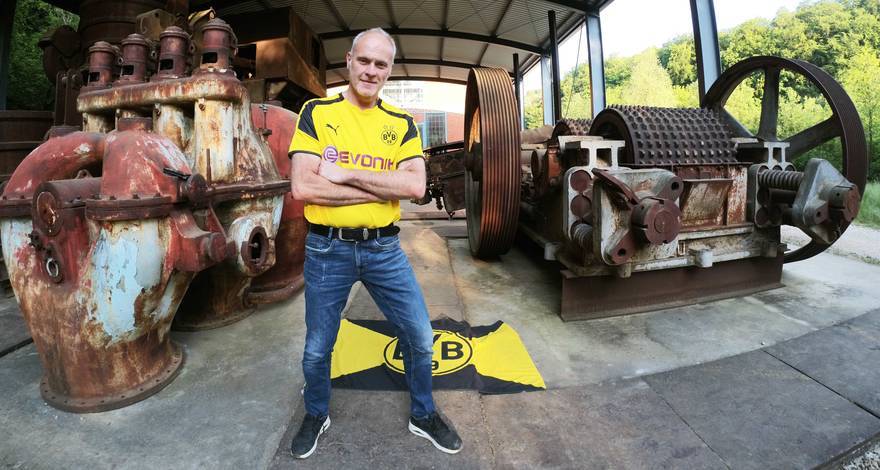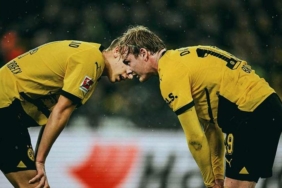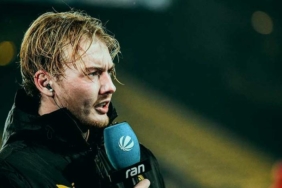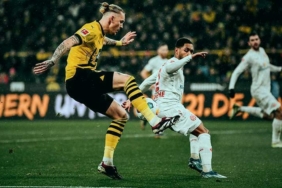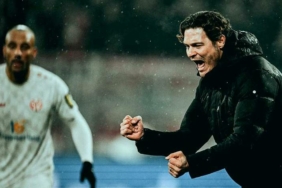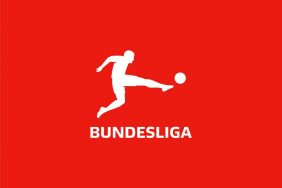Nico Würth was born in Differdange, Luxembourg, in 1968. Today, he lives in Sanem and works as a locksmith for the country’s national railway company. Nico is also President of the Borussia Dortmund fan club Lëtzebuerg-Süd.
When and how did you become a Borussia Dortmund fan?
Believe it or not, it happened at the Parkstadion in Gelsenkirchen. The day was December 10, 1988 and the game none other than the derby against Schalke in the DFB Cup round of 16. I drove there together with Menn Rolz, a vocational school friend of mine (and also Luxembourg’s biggest ever Schalke fan), in a Renault 09. Borussia won 3–2, with goals from Michael Rummenigge, Michael Zorc und Nobby Dickel – you can imagine the sheer frenzy in the Dortmund fan block. I was instantly hooked. By the time our team won the DFB Cup that season in Berlin – on my 21st birthday, of all days – I had long turned into a true Borussia Dortmund fan.
When was the first time you went to a Borussia Dortmund game?
The first game I saw at the Westfalenstadion, as it was called then, was the 2–2 draw against Bayern Munich in February 1987. When Michael Zorc scored the equalizer in the last minute, the fans went crazy. I had my most amazing experience as a Borussia Dortmund fan on May 28, 1997. That was when we won the Champions League final at Munich’s Olympic Stadium. The drive back to Luxembourg was rather quiet, though – because I was riding in a bus full of Juventus fans …
You are President of the Borussia Dortmund fan club Lëtzebuerg-Süd. When was it founded and how many members do you have? Tell us about your activities.
Our fan club started out in 2013. Today, it has close to 200 members. We go to almost every home game – around 18 of our members usually drive to Dortmund in two minibuses. Plus, we organize lots of fan club activities as well as meet at various pubs and bars. Every year, we raise money for charity, too. We alternate between donating the funds to Luxembourg-based organizations and to Borussia Dortmund’s “leuchte auf” foundation.
Where did you watch the last game of the season and what were your feelings after the final whistle?
That day, I was on my flight home from a New York vacation. I’d booked the vacation in December 2022 because I honestly didn’t expect our team to perform so well during the second half of the season. Sadly, the timing meant that I couldn’t make it to the stadium in Dortmund. Jet-lagged but pumped full of adrenaline, I sat on the edge of my seat in front of the TV from 2 p.m. and watched as the game took that unlucky turn, especially after the missed penalty. Like millions of other Borussia fans, I was ecstatic when Cologne scored their equalizer, only to fall into deepest despair again after Bayern’s second goal.
Interview: Uwe Schedlbauer
In this section, our main sponsor Evonik, who supports us at all of our international games, lets soccer fans who feel close to Borussia Dortmund but live nowhere near SIGNAL IDUNA PARK have their say.
One of the young stars in Borussia Dortmund’s Bundesliga squad is Youssoufa Moukoko. At the age of 16 years and one day, he became – and to this day remains – the youngest footballer ever to play in the Bundesliga and, at 16 years and 18 days, the youngest ever Champions League player. Before Moukoko, Borussia Dortmund had another record youngster in Nuri Sahin who, in 2005, was the youngest Bundesliga player up to that time. Striking a good balance between young and seasoned players is important in any football team. When it comes to chemistry, it’s the “young catalysts” that are particularly popular. A catalyst facilitates the reaction between chemical substances without being consumed itself. Yet catalysts age, meaning their efficiency decreases over the years. Specialty chemicals group Evonik has production sites, one of which is in Luxembourg, where catalysts are “rejuvenated”. This process allows them to be used for longer, which is not only sustainable but also saves costs. Imagine you could also do that with legendary Borussia Dortmund players. What would your dream team look like?

